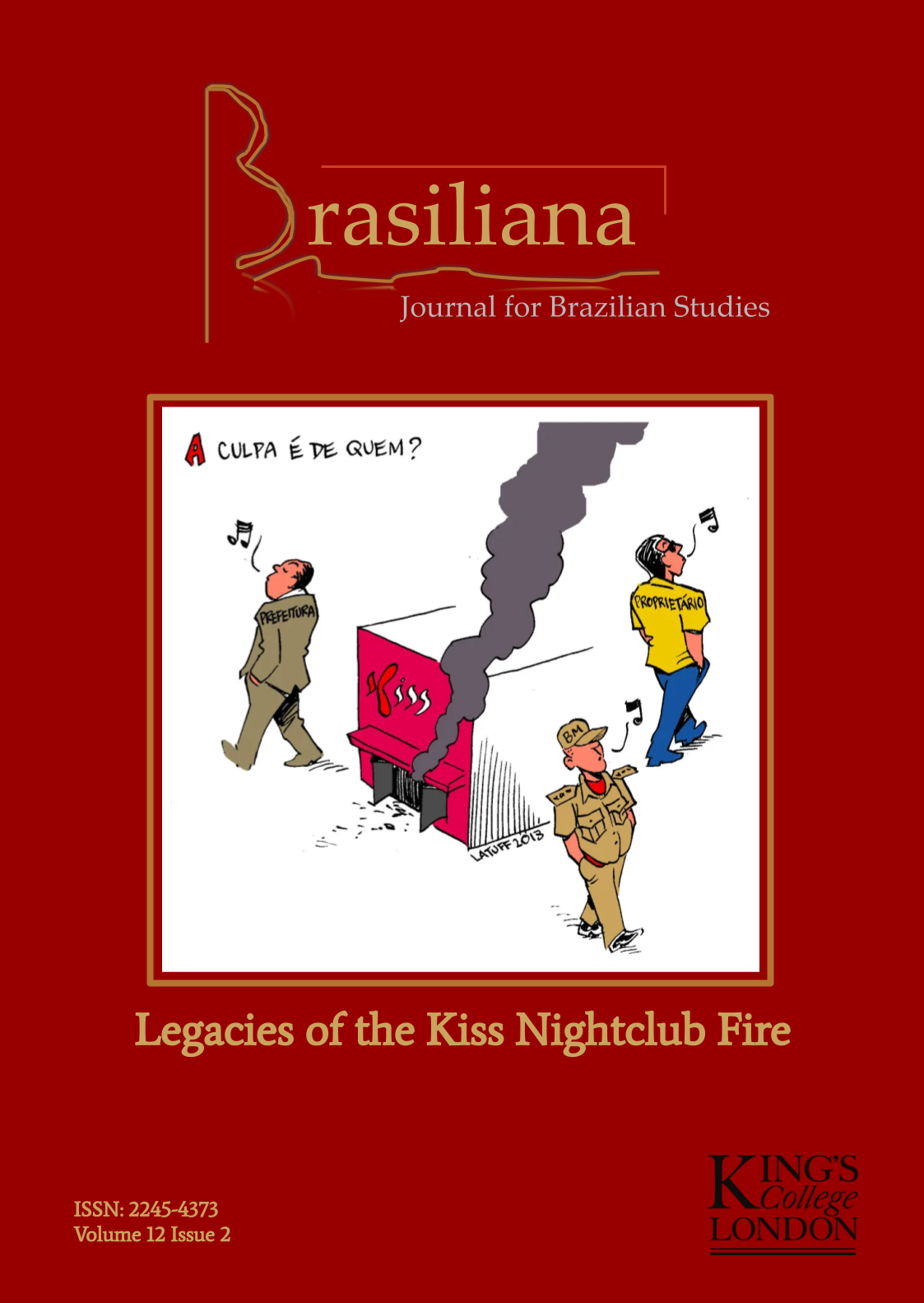The Kiss Nightclub Fire of January 27, 2013, in Santa Maria, Brazil, killed 242 people and left hundreds more injured and traumatized. Brazilians and international observers immediately struggled to make sense of this horrific tragedy. Nine years of judicial proceedings, culminating in the criminal trial of four defendants in December, 2021, have been the most prominent forum for investigation and analysis of the fire. But family members of victims, journalists, artists and citizens of Santa Maria have also pursued other avenues of inquiry and modes of reflection, ranging from exhaustive long-form journalism to esoteric communications with departed family members.
These widely varying perspectives on an event known as the Tragedy of Santa Maria invite scholarly reflection. The Kiss Nightclub Fire can be understood as emblematic of and pivotal to larger transitions in Brazil’s recent history. In January, 2013, Brazil was riding the crest of a long commodities boom, one accompanied by federal programs designed to bring millions of citizens out of poverty and to create opportunities to join a growing middle class.
The fire ushered in a new period of political crisis, one marked by a successive wave of national tragedies (Mariana, Museu Nacional, Marielle, Brumadinho, etc.) How does the Kiss Nightclub Fire fit into this trajectory? Do the omissions and acts which allowed this tragedy to unfold reveal larger patterns that ultimately contributed to a broader national crisis? Do the struggles for justice, reckoning or remembrance illuminate larger political, social and cultural struggles in recent Brazil?
Published: 2024-01-20

